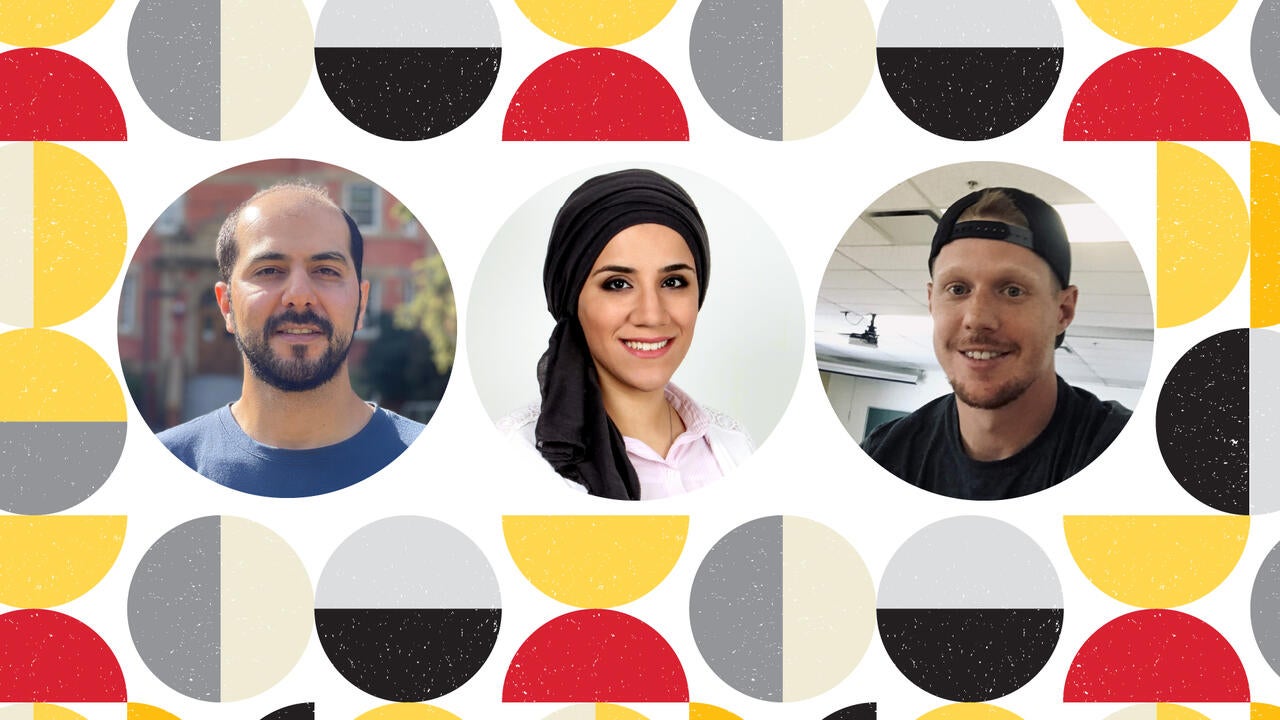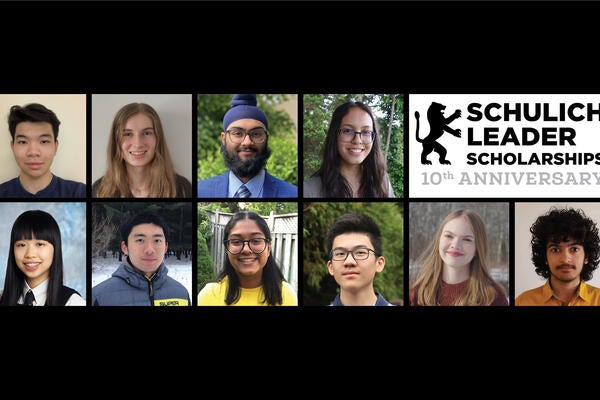
Waterloo welcomes three postdoctoral scholars
This is the second cohort supported by the AMTD postdoctoral fellowship

This is the second cohort supported by the AMTD postdoctoral fellowship
By Marta Bailey Graduate and Postdoctoral AffairsThe start of the term hustle and bustle brings with it a sense of excitement; especially for three new AMTD scholars, who are joining the University postdoctoral community. The three postdocs join four others who began their fellowship in 2020, all funded by the prestigious AMTD Waterloo Global Talent Postdoctoral Fellowship. The AMTD fellowship program, which provides postdocs with an annual salary of $75,000 plus a $7,500 engagement fund, has been made possible by a generous donation from the AMTD Foundation, led by Waterloo alumnus Calvin Choi (BA ’01).
“The University continues to be enormously proud of its AMTD program. For the second consecutive year, the AMTD Postdoctoral program attracted an outstanding pool of applicants from which three exceptional scholars were selected to join the University. We are eager to see these two cohorts advance the Program's impact, both individually, and as a community of scholars," Jeff Casello, associate vice-president, Graduate Studies and Postdoctoral Affairs, said.
He goes on to say that “as we look forward, we are thrilled to announce that next year's program will grow in numbers and in its inclusivity. Once again, Dr. Choi through the AMTD foundation has demonstrated his commitment to the University and our collective goals of advancing equity and diversity by funding an additional postdoctoral award to support Black and Indigenous scholars. We thank Dr. Choi for his generosity and acknowledge how this contribution accelerates the important work that continues at Waterloo in ending systemic racism."
Meet the 2021 recipients of the AMTD Waterloo Global Talent Postdoctoral Fellowship:
Anwar Jaber is based in the School of Architecture where, with Professor Robert Jan van Pelt, she’ll pursue research on the role that architecture plays in cities facing political transitions and extreme conditions, focusing on museums that aim to address national narratives of war, memory and violence. Read more about Dr. Jaber’s research.
Milad Nazarahari is a part of the Mechanical and Mechatronics department, working alongside Professor Arash Arami, to advance the medical community’s capacity to engage intelligent robots and biofeedback in developing affordable and accessible technology to support the rehabilitation of stroke patients in Canada. Read more about Dr. Nazarahari’s research.
Chad Walker conducts interdisciplinary research investigating how Smart Local Energy Systems (SLES) — projects that combine smart technology with sustainable, local energy production and management — can create just and inclusive clean energy systems. Chad will work with Professor Ian Rowlands in the School of Environment, Resources and Sustainability. Read more about Dr. Walker’s research.
The AMTD 2022 application process has now launched. Applicants to the AMTD Fellowship must have the support from a University of Waterloo researcher; the application deadline is November 18, 2021. This program is intended to be the premier award for postdocs in Canada, and the support reflects this goal. The AMTD fellowship has an annual salary of $75,000 plus $7,500 engagement fund, plus access to additional dissemination fund. These values exceed the Tri-Agency Banting levels of support. For additional details, visit the University of Waterloo AMTD website.

Read more
Waterloo welcomes outstanding students, celebrates tenth year of Schulich Leader Scholarships

Read more
Waterloo alumnus will be among the distinguished recipients of honorary doctorates at the University of Waterloo's upcoming spring convocation

Read more
Edris Madadian is developing technology to remove toxic chemicals from wastewater
The University of Waterloo acknowledges that much of our work takes place on the traditional territory of the Neutral, Anishinaabeg, and Haudenosaunee peoples. Our main campus is situated on the Haldimand Tract, the land granted to the Six Nations that includes six miles on each side of the Grand River. Our active work toward reconciliation takes place across our campuses through research, learning, teaching, and community building, and is co-ordinated within the Office of Indigenous Relations.